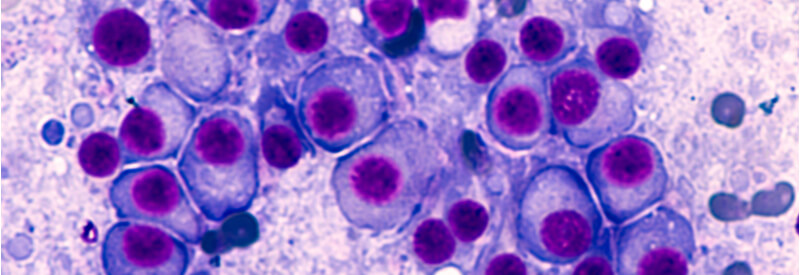CellCentric, a UK-based biotechnology company, has announced that the U.S. Food and Drug Administration (FDA) has granted orphan drug designation for inobrodib in the treatment of multiple myeloma.
Delivered as an oral capsule, inobrodib can be used at home without requiring intensive monitoring. It is a first-in-class drug, with a new mechanism of action. It can be taken by patients who have been unresponsive to other treatments, and in combination with existing standard of care drugs.
Orphan drug status is granted by the FDA to support the development of medicines for disorders that affect fewer than 200,000 people in the U.S. Orphan drug designation benefits can include market exclusivity for up to seven years after regulatory approval, exemption of FDA application fees, and tax credits for qualified clinical trials.
About CellCentric’ clinical trial
CellCentric’s ongoing blood cancer trial involves patients with a range of hematological malignancies including multiple myeloma, but also non-Hodgkin lymphoma, acute myeloid leukaemia, and higher-risk myelodysplastic syndrome (MDS).
CellCentric plans to announce its expansion cohort data at the 65th ASH Annual Meeting and Exposition in San Diego in December. This will include data from a trial of inobrodib to treat multiple myeloma both as a monotherapy and in combination with pomalidomide and dexamethasone.
“Orphan drug designation for inobrodib is an important milestone in our journey to develop an additional therapeutic option for patients with multiple myeloma,” said Tomasz Knurowski, CellCentric’s chief medical officer.
“We look forward to providing an update on our clinical data by the end of the year, which will help inform the next stage of development of inobrodib.”
About inobrodib
Inobrodib works by binding to a specific part of proteins p300 and CBP (bromodomain). It is highly selective and does not impact similar pockets on other proteins. Through this action inobrodib reduces the expression of key cancer drivers: IRF4, MYC, and the androgen receptor (AR and its variants).
It is a new type of treatment for people with cancer. As an oral capsule, it is easier for patients and can be taken at home without the need for intensive monitoring. As it has a good safety profile for a drug in this setting, it can also be used by those who are unable to tolerate other treatments, including the elderly and frail.
This potentially represents a significant benefit over existing treatment options as it enables a wider range of patients to be treated, including those who want to be treated closer to home.
Earlier this month inobrodib was given Fast Track designation by the FDA.





